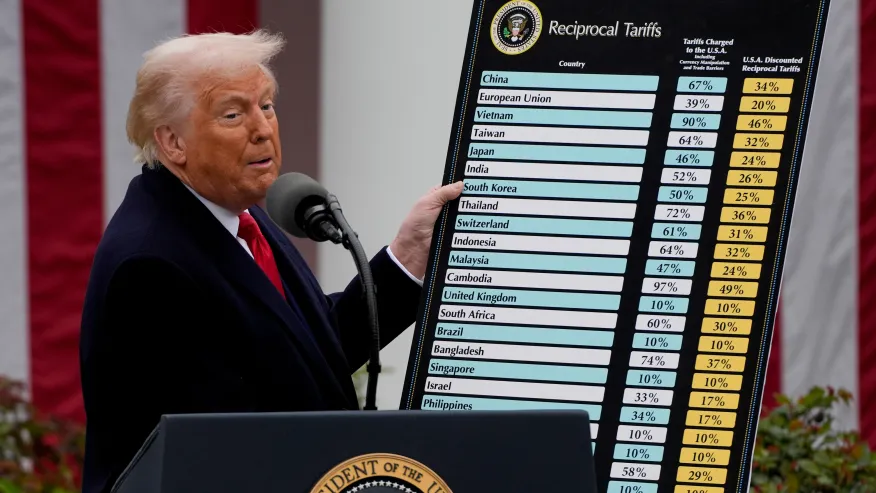The recent implementation of reciprocal tariffs by President Donald Trump has prompted significant global reactions. Nations such as Israel, India, the European Union (EU), Japan, Vietnam, and Cambodia are actively responding to these measures, with some considering reducing their own tariffs to mitigate economic impacts.
Understanding Reciprocal Tariffs
Reciprocal tariffs are designed to match the import duties that U.S. goods face abroad. On April 2, 2025, President Trump announced a baseline 10% tariff on all imports, with higher rates for specific countries, citing the need to address trade imbalances and protect domestic industries.
Global Responses
- Cambodia: Facing a 49% tariff on its exports to the U.S., Cambodia has proposed reducing its tariffs on 19 categories of U.S. goods from a maximum of 35% to 5%. This initiative aims to open negotiations to alleviate the economic strain and support Cambodia’s development.
- Vietnam: Hit with a 46% tariff, Vietnam’s leader To Lam has engaged in discussions with President Trump to explore a bilateral agreement that could lead to mutual tariff reductions. Vietnam has expressed willingness to cut tariffs on U.S. goods, contingent upon reciprocal actions from the U.S.
- India: Subjected to a 26% tariff, India has indicated a readiness to negotiate tariff reductions and increase imports of U.S. goods, including energy and defense equipment. These steps are part of broader efforts to address trade imbalances and strengthen economic ties.
- European Union (EU): Confronted with a 20% tariff, the EU has proposed lowering tariffs on U.S. automobiles and increasing purchases of American energy products. These offers aim to ease tensions and prevent a full-scale trade war.
- Japan: Facing a 24% tariff, Japan has pledged to import more U.S. liquefied natural gas (LNG) and invest in artificial intelligence technologies. Despite these concessions, Japan remains subject to the increased tariffs, highlighting the complexities of the negotiations.
- Israel: With a 17% tariff imposed, Israel has entered discussions with the U.S. to explore potential avenues for reducing trade barriers and enhancing bilateral economic relations.

Economic Implications
The introduction of reciprocal tariffs has led to significant economic repercussions:
- Stock Market Volatility: Major indices have experienced declines, reflecting investor concerns over escalating trade tensions.
- Global Supply Chains: Industries reliant on international supply chains, such as automotive and technology sectors, face disruptions due to increased costs and uncertainty.
- Inflationary Pressures: Consumers may encounter higher prices for imported goods, contributing to inflation and affecting purchasing power.
Conclusion
The implementation of reciprocal tariffs by the U.S. has prompted a range of responses from affected nations, each seeking strategies to mitigate economic impacts and maintain favorable trade relations. As negotiations continue, the global trade landscape remains in flux, with potential long-term implications for international economic stability.Wikipedia